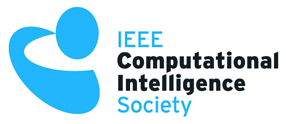
- This event has passed.
Special Session on Interpretable Deep Learning Classifiers @ WCCI (IJCNN) 2018.
July 8, 2018 - July 13, 2018
Chairs: Plamen P. Angelov, Lancaster University, UK p.angelov@lancaster.ac.uk
Jose C. Principe, University of Florida, principe@cnel.ufl.edu .
Synopsis: Deep Learning is becoming a synonym of highly precise (reaching or surpassing capabilities of a human) computational intelligence technique. Very interesting and important results were reported recently in both scientific literature and also grabbed the imagination of the wider public and industry helping propel the interest towards AI, neural networks, machine learning. It was applied mostly to solve classification problems in image processing, but also for predictive tasks in speech processing and other problems. Despite the undoubted success in achieving high precision and avoiding handcrafting in feature selection a number of issues remain unresolved, such as: i) transparency and interpretability; ii) the requirement for extremely large training data set, computational resources and time; iii) overfitting and catastrophic failures with high confidence in some cases; iv) convergence proof for the case of reinforcement learning; v) rigid structure unable to be adapted/to dynamically evolve with new samples and/or new classes; vi) repeatability of the results. Methodologically, the vast majority of the techniques of this hot and quickly developing area are based exclusively on neural networks (convolutional, belief based, etc.). Very recently publications appear where the deep learning (multi-layer) architecture with different levels of abstraction is build based on fuzzy rule-based systems or fuzzy sets are used to represent coefficients/weights in Restricted Bolzman Machines, etc. The aim of the special session is to address the bottleneck issues listed above and discuss and represent alternative and most recent methods, techniques and approaches that can help resolve these issues.
The specific sub-topics that will be of interest include:
- Interpretable/Transparent Deep Learning
- Computational and time complexity/efficiency of Deep Learning Methods
- Repeatability of the results of Deep Learning Methods
- Degree of confidence in the results of Deep Learning
- Highly Parallelisable Deep Learning Methods
- Deep Learning with proven convergence
- Re-trainability and dynamically evolving structures/architectures for Deep Learning
- Ensembles of Deep Learning Classifiers
- Fuzzy Deep Rule-based Classifiers
- Self-adaptive and Self-organising Deep Learning Architectures
Also applications to:
- Computer Vision
- Image Classification
- Robotics
- Remote Sensing
- Biology and Tomography
- Surveillance and Defense
- Industry 4.0
- Assistive Technologies and Digital Health
Important dates:
- Paper Submission Deadline: 15 January 2018
- Paper Acceptance Notification Date: 15 March 2018
- Final Paper Submission and Early Registration Deadline: 1st May 2018
- IEEE WCCI 2018: 08-13 July 2018
Submission Guidelines: Please follow the regular submission guidelines of WCCI 2018. Please notify the chairs of your submission by sending an email to: p.angelov@lancaster.ac.uk or principe@cnel.ufl.edu.
This special session is supported by the IEEE Task Force on Deep Learning and by Evolving and Adaptive Fuzzy Systems.

